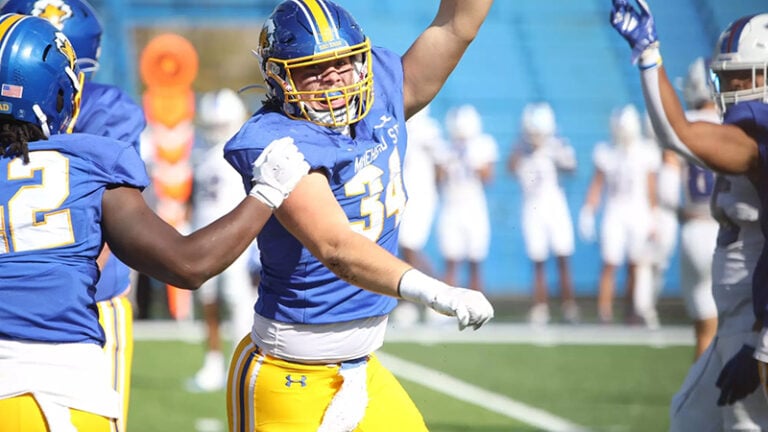By Ashley Scoby
Special to NKyTribune
Last week, Kentucky baseball player AJ Reed was – deservedly – named the Lexington Herald-Leader’s 2014 Sportsman of the Year. He had one of the best years in UK sports history and will go down as one of the best baseball players to ever wear a Kentucky uniform.
But his victory made him the 32nd male winner in the 34-year history of the award.
Dating back to 1981 (the first year of the award) and including the 2014 competition, out of 68 winners and runners-up, a woman was voted into the top two only five times.
Mary T. Meagher, the Olympic swimmer from Louisville, was runner-up in 1981 and winner in 1984. Valerie Still – the all-time leading scorer in University of Kentucky basketball history (men’s or women’s) – placed second in 1982. Jenny Hansen, star gymnast, was the last female winner, in 1994. Since then, only one female has been a top two vote-getter in the last two decades: Louisville basketball standout Angel McCoughtry was runner-up in 2009.
Twenty years, and only one female has been considered even the second-best athlete in any given year.
Kentucky media, you have spoken.

The Sportsman of the Year award is not a contest to determine who exemplifies sportsmanship on and off the field or court (although winners certainly display that quality, and that’s what the award is supposed to honor). The Sportsman of the Year award is a Homecoming King-like popularity contest.
And let’s not kid ourselves: women’s sports are rarely as popular as men’s. So the idea that a female athlete has a fair chance to win this award – with the way the media have historically voted – is laughable.
Surely female athletes haven’t gotten worse at their given sports in the past two decades. Advances in science, and overall opportunity to play sports has increased for all athletes. There is, of course, Title IX. Why are female athletes’ accomplishments and sportsmanship, year after year, deemed lesser than men’s?
Some past male winners have been no-brainers: For example, the year that Anthony Davis had in 2012 was unlike anything we’ve seen in Kentucky in years.
The same could be said of Reed. Never before has UK had a baseball player of his caliber, and he swept every national Player of the Year award. He led the Southeastern Conference in both home runs and pitching wins.
But in a less popular sport (with less media coverage), Arin Gilliland is considered one of the best female soccer players to ever play at UK. And while she didn’t have the Player of the Year Awards that Reed had, she did win the national HONDA Inspiration Award – a mark of sportsmanship, you would think. Gilliland was a standout on the field this season after returning from losing her mother to cancer, and a torn ACL.
She didn’t make the top 10 in voting.
So why do we consider Reed a no-brainer, and Gilliland an after-thought?
How is it that Valerie Still – one of the best athletes in UK history – was never considered “sportsman” of the year?
Last year, native Lexingtonian Samantha Kinchen didn’t even finish in the top 10 in voting despite winning both the Women’s National Golden Glove Championship in the 152-pound class and the USA Boxing National Welterweight Championship. That’s two national championships.
Is that glossed over because she’s female, or because she’s in a less prominent sport than basketball and football? And the real question: Why does it matter that she’s in a less popular sport if we’re supposedly voting for someone whose athletic accomplishments and sportsmanship was transcendent?
I understand the fact that basketball and football are more visible and popular. If that’s what we’re basing this award on, then Kentucky’s Sportsman of the Year award should be re-named “which basketball or football player had performed best THIS year?”
This is certainly not an indictment of the Herald-Leader; it’s an indictment of voters that, oftentimes, vote for the athlete they heard the most about that year, not after doing research into their actual accomplishments.
It’s an indictment of myself as well. As a voter, am I ignoring the accomplishments of high school softball players, fencers and horse-racing stars, simply because I don’t follow these sports throughout the year?
It takes time to research our ballots to that degree, but maybe we as voters should take a bigger responsibility for making this award something more than a popularity contest.
One part of this, however, does start with the Herald-Leader: the name of this highly-regarded award.
According to Mark Story, a columnist who coordinates the ballot and voting for the newspaper, it’s so named “Sportsman” of the Year because it “connotes sportsmanship, which is what we envision the award being – not just athletic success, but the way they comport themselves outside of sports, too. I don’t think we’re doing it in a gender-specific way.”
“Androcentric,” according to Merriam-Webster, means “dominated by or emphasizing masculine interests or a masculine point of view.” And continuing to use a word – “sportsman” – in relation to both males and females only perpetuates that concept, good intentions or not. When the overwhelming majority of this award’s winners are male (again, 32 out of 34), that accidental gender bias only becomes more concrete.
Certainly fewer females vote in the process, although Story said more women voted this year than ever before (part of a record 150 media members who participated). But to include more of a female perspective, you can’t simply manufacture female sports media members.
A potential solution is separating the award into separate categories for males and females, so that at least one female a year will be honored for her accomplishments. But according to Story, that would take away from the award’s charm. Kind of like having high schools of all sizes compete in one state basketball tournament.
“I think our feeling ultimately is that the appeal of this award is that you throw everybody in the pot – from high school athletes all the way up to Anthony Davis,” Story said. “Our feeling is that if we separated that, the award would lose some of its luster.”
But I disagree: A separation into male and female athlete of the year awards would make the award even more powerful, because it gives lesser-known athletes a fighting chance. The second-coming of Valerie Still could have played for the Kentucky women’s basketball team, set 100 school records and still wouldn’t have had a chance against someone like Aaron Harrison.
Men’s sports are simply too dominating in the public eye.
It’s fantastic that the state of Kentucky has so many athletes who have done so much both within their sports and in the community and are being honored for doing so. But it’s time to take a serious look to see if what we’re really doing is just recognizing and appreciating 50 percent of them.
Ashley Scoby is a senior journalism major at the University of Kentucky and a sports writer for KyForward.com. She has reported on the Wildcats for wildcathoops.com, vaughtsviews.com and kysportsreport.com as well as for newspapers in Danville and Glasgow. She will join Sports Illustrated magazine as a summer intern in June.

















